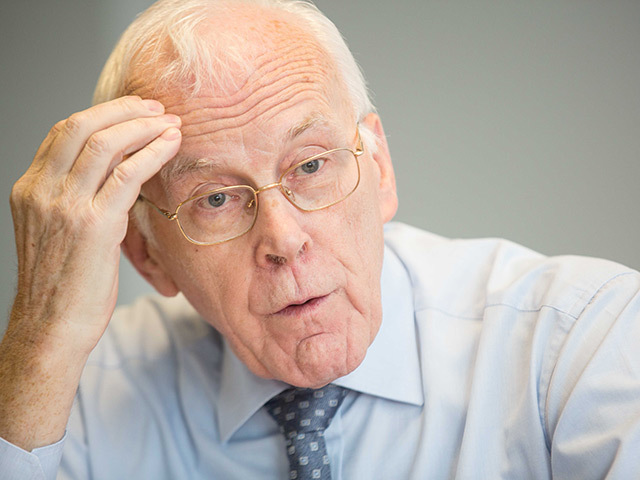
Sir Ian Wood did not, I am sure, particularly want to get involved in the independence referendum debate. Eventually, he was driven to do so by the gross misrepresentation of a subject he knows better than almost anyone.
The key passage in his Energy Voice interview
was where he stated: “I believe the debate should not be about Nationalism but growth and economic success. Against these measures, it is very hard not to conclude the case is heavily weighted towards Scotland remaining in the UK and getting the best of both worlds. I want the best for future generations of Scots.”
These words point straight at the fault-line in the whole debate. For anyone whose priority is the economic and social condition of their nation, the clear verdict is that “the case is heavily weighted” against independence.
But for Nationalists, the starting point is that a rationale must be built which will support their fundamentalist belief – which is in independence, not anything so mundane as “growth and economic success”.
So, if dodgy statistics and bogus projections are required, then so be it. The end justifies the means. Nowhere is this more apparent than in relation to oil and energy.
Wood reckons that the SNP is over-estimating North Sea reserves by around 60%. He also thinks that the Office of Budget Responsibility may be under-estimating them. But there is a crucial distinction between these two positions.
Everyone can unite in hoping that the OBR estimate is on the low side. The clue is in their name. “Budget Responsibility” dictates caution since it is obviously not very responsible to budget for a country’s future on the basis of a best case scenario. If time proves their assumptions to be too modest, then it will mean more jobs and more revenue. Everyone wins.
There is a world of difference between hoping for such a bonus due to under-estimation and basing the entire economic case for separation on gross over-estimation.
Because an independent Scotland would be so over-reliant on oil revenues, this is the only way for Alex Salmond to make his spending commitments add up.
While the headlines which his interview attracted were mostly about the inflated figures conjured up by Salmond on oil revenues (40% too much, in the short term) and reserves, Wood also went through the SNP’s wider energy narrative like a knife through cheese.
As this column has argued for some time, the supposed energy policy for an independent policy is ludicrous. It focuses entirely on renewables yet the only way Scottish renewables can be funded is if English consumers continue to subsidise them. Neither evidence nor commonsense suggest that this would be the case.
We would end up as importers of energy rather than exporters. I have always predicted, more specifically, that we would become importers of nuclear power generated south of the border which would make the SNP’s policy of closing down Hunterston and Torness even more of a pyrrhic victory.
Wood offered a variation on the same theme. He thinks we would become importers of fracked gas from England. Maybe he is right or maybe we are each half right.
Either way, the triumph of the Nationalists’ much-trumpeted preoccupation with renewables would be that for the first time since Edison invented electric light, Scotland would be unable to meet its own demands for power generation.
There is no need for any of this. As long as we are part of the same state and the same market, it makes sense for Scotland to play to its strengths in renewables and to be subsidised by consumers throughout Britain for doing so. The “100%” rhetoric would still be well over the top, but at least the principle is reasonable.
But such an arrangement is entirely dependent on the willingness of English consumers to meet 90% of the costs.
Even if their politicians wanted to go along with this, which is unlikely, the post-separation mood of their constituents would make it impossible.
The “Scottish subsidy” on electricity bills in Liverpool and Newcastle would become unsaleable – and why not? It would be us who had just walked out.
After the referendum, the whole renewables policy is going to need re-visiting and some honesty demanded. It is increasingly obvious that marine renewables are not going to make any significant contribution for a long time to come. The economics of offshore wind remain dubious at best.
So there has to be some long overdue honesty about the extent to which “100% renewables” translates in reality into hydro (which was there anyway) and virtually all of the rest from onshore wind.
And there has to be some read across from permitting thousands of turbines to the manufacturing employment which was promised but has signally failed to materialise.
There is an increasing unreality about the independence debate and the claims that are being made to sustain the case for separation.
Whatever the result, there will need to be some serious reality checks when the rhetoric finally runs out on September 18h – and nowhere more so than on Scotland’s energy future.
A man of many dimensions, Brian Wilson is a former UK energy minister and former chairman of the UK arm of Airtricity
Recommended for you
